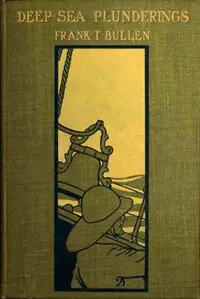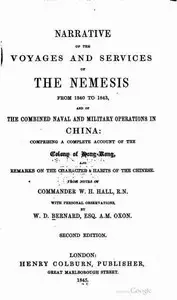"A Sack of Shakings" by Frank T. Bullen is a collection of essays written in the early 20th century. The essays draw on the author’s experiences at sea and explore various topics related to the ocean, its creatures, and maritime life. The opening portion introduces readers to an engaging narrative about a school of sperm whales, focusing on themes of family, survival, and the harsh realities of life beneath the waves. The beginning of the work captures a tranquil moment in the Pacific Ocean, where a troop of sperm whales enjoys a peaceful existence until they face an unexpected attack from whalers. As the scene unfolds, it vividly describes the majestic and delicate nature of these creatures, particularly the newly-born calf who becomes orphaned amidst the chaos of destruction. This opening sets the stage for a broader exploration of marine life, touched by the balance between the beauty of nature and the cruelty of survival at sea. Bullen’s descriptive style effectively immerses the reader in the ocean's depths, hinting at the complexities of the ecosystems and the challenges faced by its inhabitants. (This is an automatically generated summary.)

A Sack of Shakings
By Frank Thomas Bullen
"A Sack of Shakings" by Frank T. Bullen is a collection of essays written in the early 20th century. The essays draw on the author’s experiences at se...
Frank Thomas Bullen, British novelist, was born of poor parents in Paddington, London, on 5 April 1857, and was educated for a few years at a dame school and Westbourne school, Paddington. At the age of 9, his aunt, who was his guardian, died. He then left school and took up work as an errand boy. In 1869 he went to sea and travelled to all parts of the world in various capacities including that of second mate of the Harbinger and chief mate of the Day Dawn, under Capt. John R. H. Ward jun in 1879 when she was dismasted and disabled. Having spent 15 years of his life at sea, since the tender age of 12, he would later describe the hardships of his early life thus: I have been beaten by a negro lad as big again as myself, and only a Frenchman interfered on my behalf. Those were the days when boys in Geordie colliers or East Coast fishing smacks were often beaten to insanity and jumped overboard, or were done to death in truly savage fashion, and all that was necessary to account for their non returning was a line in the log to the effect that they had been washed or had fallen overboard. A parallel may be drawn with Joseph Conrad's career at sea aboard Torrens 1891–1893. He was a clerk in the Meteorological Office from 1883 to 1889. His reputation was made over the publication of The Cruise of the "Cachalot" (1898); and he also wrote, amongst other books, Idylls of the Sea (1899); Sea Wrack (1903); The Call of the Deep (1907) and A Compleat Sea Cook (1912), besides many articles and essays. He lectured extensively and was highly critical of Australasia's lack of defences against what he saw as imminent naval threats from Germany and Japan. He died at Madeira on 1 March 1915.


















